On May 17-18, 2025, Tsinghua PBCSF Global Finance Forum 2025 themed "Sharing the Future: Building an Open and Inclusive Economic and Financial System" was successfully held in Shenzhen. On the afternoon of May 17, Session III, “The Challenges Posed by Global Economic Fragmentation,” was successfull held. Participants included Kairat Kelimbetov, Former Deputy Prime Minister of Kazakhstan; Former Governor, the National Bank of Kazakhstan; OUYANG Weimin, Vice President, China Society for Finance and Banking,Former President of the China Development Bank; Boris Vujčić, Governor Croatian National Bank; Nouriel Roubini, Professor Emeritus, NYU Stern School of Business. The forum was chaired by ZHANG Xiaoyan, Associate Dean and Chair Professor, Tsinghua PBCSF.
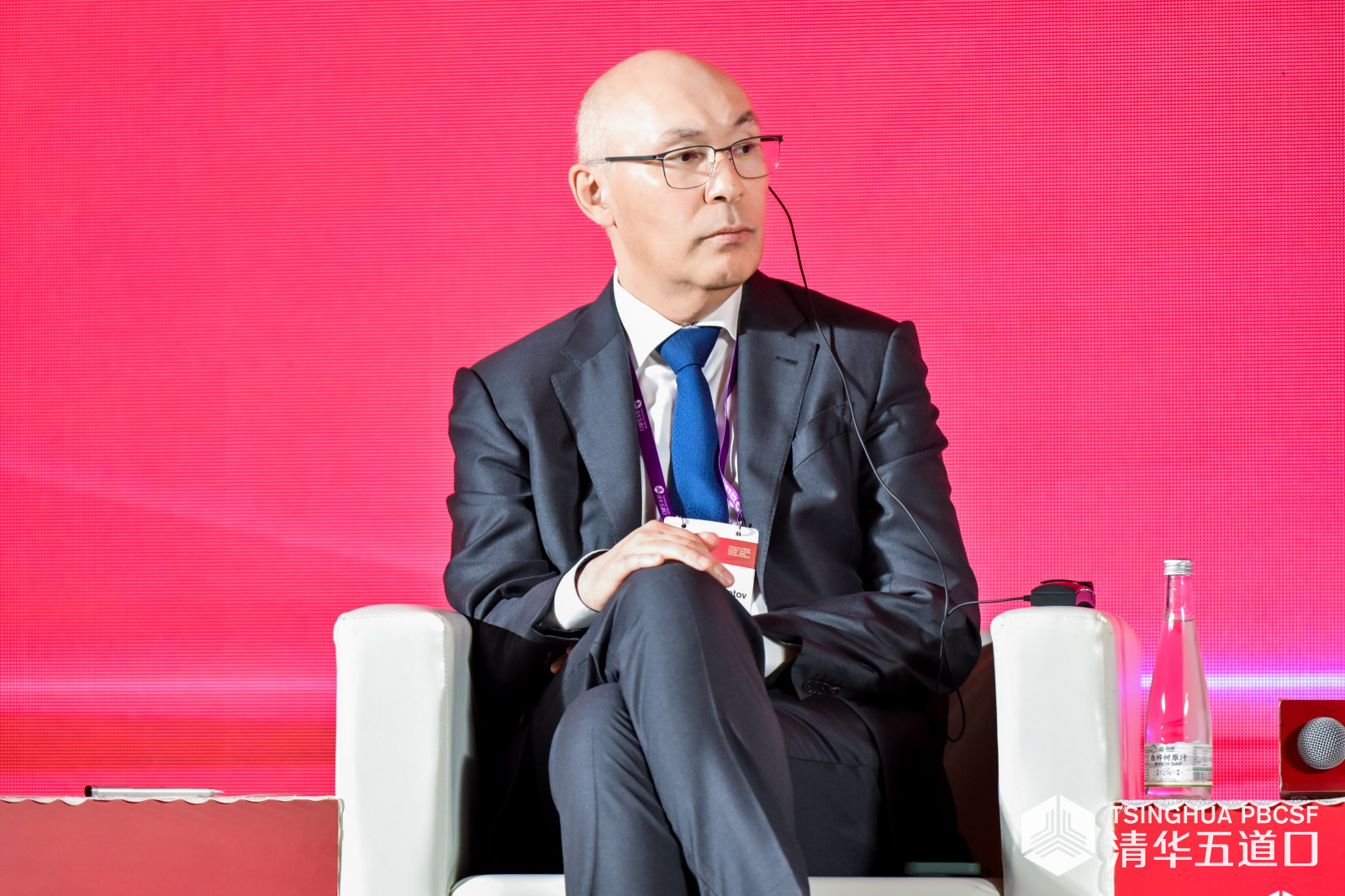
Photo of Kairat Kelimbetov
Kairat Kelimbetov stated that the global economy is experiencing a period of heightened uncertainty, presenting serious challenges for economic policymakers. Drawing a parallel to the early stages of the Great Depression in the 1930s, he warned of the dangers of repeating past policy mistakes, such as tariff wars, which were based on seemingly good intentions but ultimately led to harmful outcomes. He observed that today’s environment is increasingly characterized by a zero-sum mindset, where there are perceived winners and losers, and this dynamic is contributing to the fragmentation of global cooperation. He remarked that international disputes now often resemble negotiations between corporations rather than countries, shifting the nature of global interactions toward transactional, business-like exchanges. Despite these challenges, he acknowledged a temporary pause in global disputes as a positive sign, suggesting that this could create space for more thoughtful decision-making. While many still prefer the old model of globalization, he pointed out that a shift toward regionalization might open new opportunities—particularly for countries in Central Asia. He expressed concern that emerging markets are frequently collateral damage in great power rivalries but emphasized that crises can also present opportunities. In this context, countries should seek constructive dialogue, recognizing their different motivations and strategic horizons.
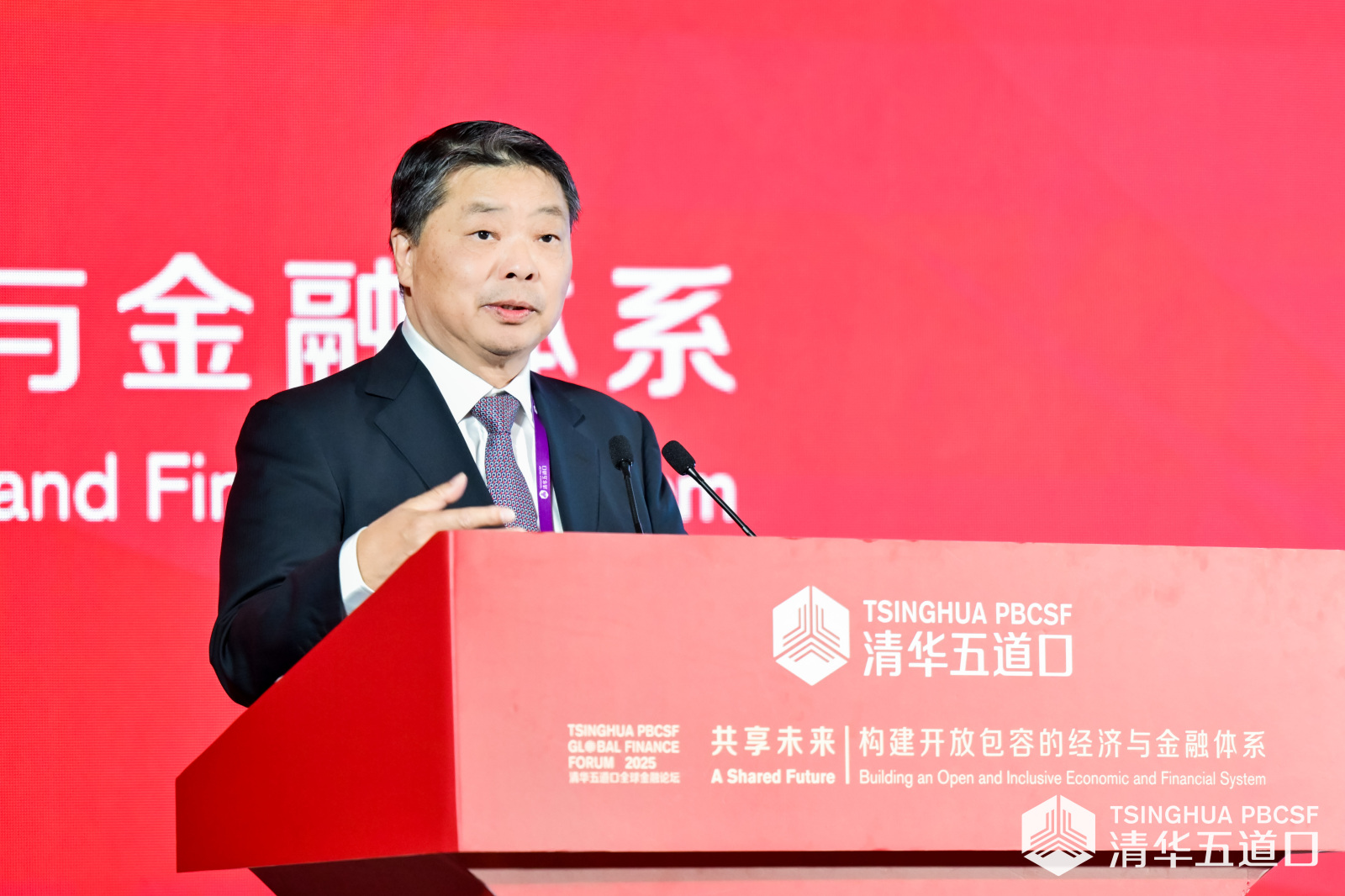
Photo of OUYANG Weimin
OUYANG Weimin emphasized the necessity of conforming to and maintaining the trend of globalization and integration. He noted that the current "fragmentation" phenomenon is a reaction against globalization. Fragmentation refers to the weakening of global economic linkages, technological decoupling, and restrictions on factor flows caused by cognitive biases, geopolitical tensions, populism, and trade protectionism, resulting in multiple relatively independent economic blocs. He believes the root cause lies in misunderstandings about trade, tariffs, and industrial reshoring issues, which should be corrected through in-depth research by academia and think tanks. He called for firm belief in globalization, strengthening technological innovation and international cooperation, promoting education reform and talent cultivation, maintaining financial market stability, and enhancing policy coordination and communication. He also stressed the importance of bottom-line thinking—hope for the best but prepare for the worst—and to achieve win-win outcomes through active cooperation, promoting the global economy toward long-term stability and prosperity amid turbulence.
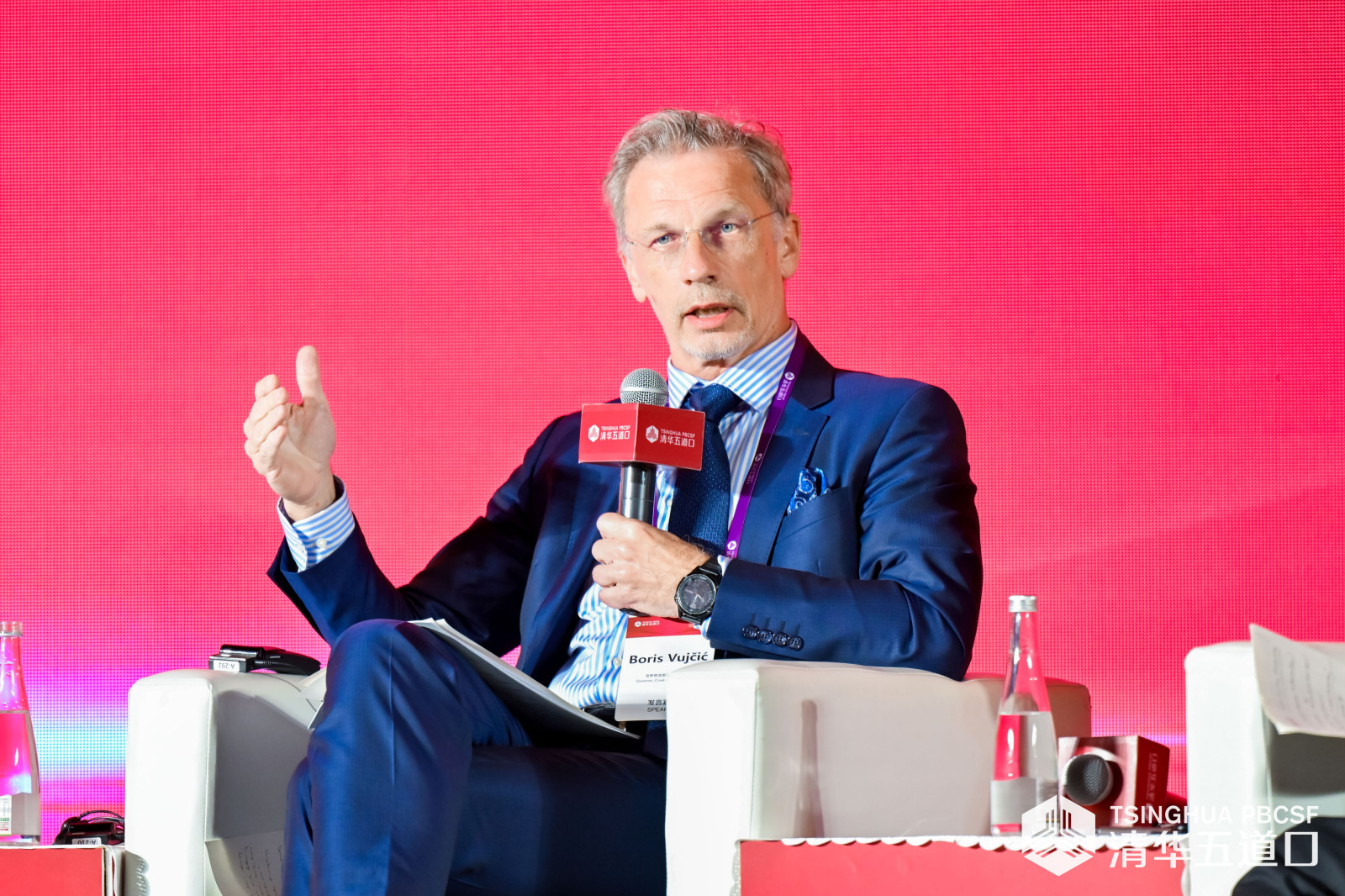
Photo of Boris Vujčić
Boris Vujčić analyzed the historical trajectory and current implications of global economic fragmentation. He highlighted that the share of trade in global GDP has undergone several distinct phases: a rise before World War I, a sharp decline between the two world wars, a resurgence after World War II, and stagnation following the 2009 global financial crisis—marking the onset of deglobalization. He noted that trade decoupling between the US and China, as well as disruptions in trade between Europe and Russia, have accelerated this fragmentation trend. He emphasized that fragmentation not only diminishes the efficiency of global value chains but also weighs on global economic growth. While the impact of tariffs on GDP is relatively modest for the EU, countries like Italy and Germany are more vulnerable. In the long run, fragmentation may misallocate resources, hinder productivity, and contribute to inflationary pressures. However, broader factors such as demographic shifts, decarbonization, defense spending, and technological innovation will also shape inflation dynamics. He stressed the importance of considering both goods and services in trade assessments and encouraged policymakers to adopt a balanced perspective that accounts for the complexity and long-term implications of economic fragmentation.
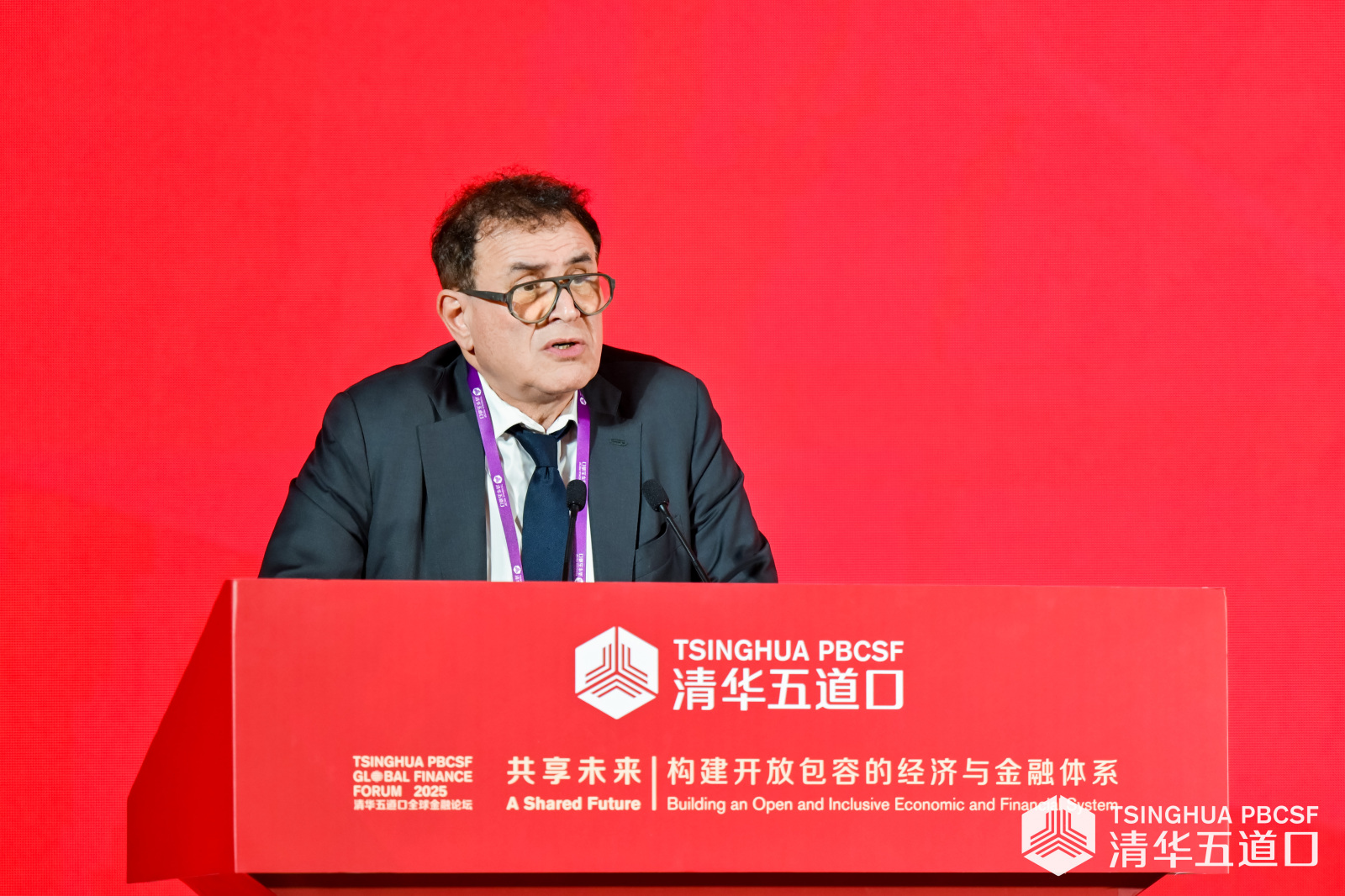
Photo of Nouriel Roubini
Nouriel Roubini emphasized that global economic fragmentation is accelerating, driven by deep-rooted geopolitical rivalries and exacerbated by the Trump administration’s tariff policies and protectionist stance. While recent U.S.-China trade tensions have temporarily eased, underlying structural conflicts persist, making long-term strategic decoupling with only limited cooperation likely. The COVID-19 pandemic highlighted the fragility of global supply chains and shifted priorities from economic efficiency to economic security, prompting countries to reassess their external dependencies and embrace more inward-oriented policies. This has triggered a broader reassessment of globalization’s core pillars—trade, technology transfer, capital mobility, and labor migration. To mitigate the risks of fragmentation, He called for strengthened multilateral cooperation. Beyond traditional trade, he emphasized the need for global collaboration in areas such as climate change, nuclear non-proliferation, cybersecurity, and pandemic preparedness. He also suggested reforming international financial institutions, fostering cross-border cooperation in emerging technologies like artificial intelligence, and establishing new governance frameworks for global commons—such as outer space, the Arctic, and deep-sea resources. These measures aim to prevent zero-sum competition and preserve a degree of global order amid rising strategic rivalry.
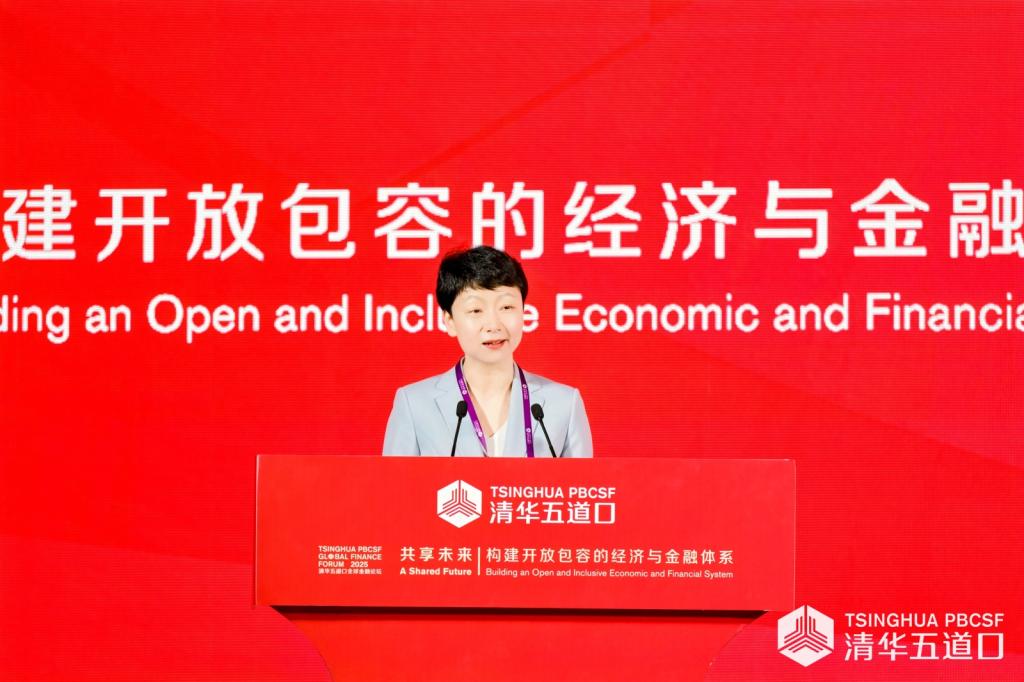
Photo of Zhang Xiaoyan
ZHANG Xiaoyan concluded with remarks emphasizing that rising geopolitical tensions and trade protectionism have hindered global economic cooperation. Strengthening international collaboration is the critical path to addressing fragmentation. Whether managing trade disputes, supply chain reorganization, technological competition, or the evolution of the monetary system, countries must enhance dialogue and rebuild cooperative mechanisms to drive global economic stability forward.
Source | Research Center for Wealth Management, Forum Working Group
Text | Yiwei Zhang
Review | Xiang Gao, Xue Wang